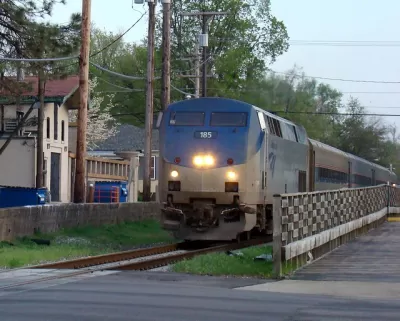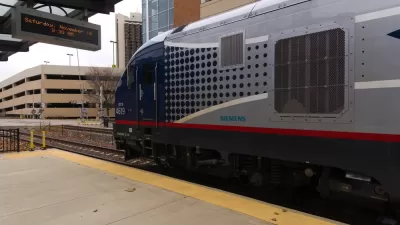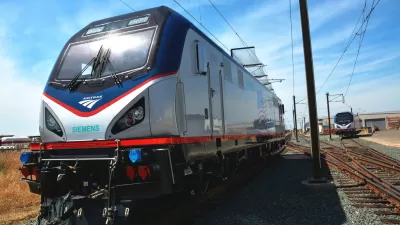Long awaited improvements on the Amtrak route between Chicago and St. Louis are being delayed again, this time because of trouble installing positive train control (PTC).

Faster rail service will not be ready by the end of this year as the Illinois Department of Transportation (IDOT) had once hoped. Trains are still unable to exceed 70 miles per hour along the Alton-Granite city corridor, but when work is done, trains will be able to move at 90 mph speeds across the whole route. IDOT now says that improvement will occur in 2020, but has yet to set a date for when train will reach 110 mph speeds the project originally sought.
"The time needed to install and test a new GPS-related safety technology positive train control, is the reason for the longer-than-expected implementation, officials say," Mark Schlinkmann reports for the St. Louis Post-Dispatch. Positive train control (PTC) is a federally mandated safety protocol that was not required when the project started. "The upgrade of the corridor, begun in 2010 and largely finished in 2017, also includes installation of new rails and concrete ties, new Amtrak stations in Alton and elsewhere and improved street crossing gates to keep vehicles from weaving around crossing bars," Schlinkmann writes.
Many upgrades to the route not related to PTC are already complete. "Other improvements were aimed at reducing delays that sometimes make trips longer than scheduled, such as adding or lengthening second-track segments and sidings so two trains can run simultaneously in more areas," Schlinkmann reports.
FULL STORY: Faster speeds on Amtrak route to Chicago delayed again

Planetizen Federal Action Tracker
A weekly monitor of how Trump’s orders and actions are impacting planners and planning in America.

Congressman Proposes Bill to Rename DC Metro “Trump Train”
The Make Autorail Great Again Act would withhold federal funding to the system until the Washington Metropolitan Area Transit Authority (WMATA), rebrands as the Washington Metropolitan Authority for Greater Access (WMAGA).

The Simple Legislative Tool Transforming Vacant Downtowns
In California, Michigan and Georgia, an easy win is bringing dollars — and delight — back to city centers.

The States Losing Rural Delivery Rooms at an Alarming Pace
In some states, as few as 9% of rural hospitals still deliver babies. As a result, rising pre-term births, no adequate pre-term care and "harrowing" close calls are a growing reality.

The Small South Asian Republic Going all in on EVs
Thanks to one simple policy change less than five years ago, 65% of new cars in this Himalayan country are now electric.

DC Backpedals on Bike Lane Protection, Swaps Barriers for Paint
Citing aesthetic concerns, the city is removing the concrete barriers and flexposts that once separated Arizona Avenue cyclists from motor vehicles.
Urban Design for Planners 1: Software Tools
This six-course series explores essential urban design concepts using open source software and equips planners with the tools they need to participate fully in the urban design process.
Planning for Universal Design
Learn the tools for implementing Universal Design in planning regulations.
Smith Gee Studio
City of Charlotte
City of Camden Redevelopment Agency
City of Astoria
Transportation Research & Education Center (TREC) at Portland State University
US High Speed Rail Association
City of Camden Redevelopment Agency
Municipality of Princeton (NJ)




























